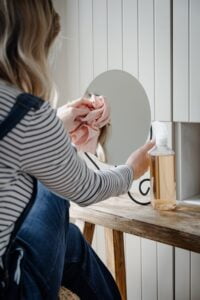Of all the people you live with and encounter daily, there isn’t anyone who you need to put up with as much as yourself. You are constantly with yourself, experiencing the various sensations of bodily existence such as the sun on your skin, how laughter wells up within you, or the feeling of a satisfying meal in your belly. A healthy or positive body image is essential for enjoying yourself and appreciating what your body can do. If you’re seeking support in nurturing a positive body image, Frisco Christian Counseling may offer valuable guidance in helping you develop a healthier relationship with yourself.
What is body image?
The term ‘body image’ refers to how you perceive your physical appearance. That relates to your skin, hair, weight, height, facial appearance, and any other physical characteristic of your body. This perception of yourself is influenced by the interaction of several complex factors such as your thoughts about your body, the messages you received about your body while growing up, and how the culture you’re in represents bodies and perceives beauty.

When you have a positive body image, you are satisfied with your body and accept as well as appreciate it. On the other hand, a negative body image is when you’re not happy with your body and dislike one or more attributes about yourself.
A positive body image may look like seeing yourself as you are most of the time, as well as accepting your body and feeling comfortable in it even when it may depart from broader societal beauty standards. Having a positive body image doesn’t mean you always feel good about yourself or that you’re happy with every part of your body.
It does mean that on most days you are happy and feel confident about how you look, and you appreciate what your body can do more than you lament what you can’t do.
Nurturing a positive view of your body.
A person can have what is widely acclaimed to be a perfect body and still find themselves feeling dissatisfied with who they are. Others, while not having a body that conforms to broader societal standards of beauty may find themselves  feeling satisfied with who they are, which leads to healthy self-confidence and freedom from the anxiety that comes with a negative body image. Body image is mostly about the way you feel about yourself, and not about what you look like from the outside.
feeling satisfied with who they are, which leads to healthy self-confidence and freedom from the anxiety that comes with a negative body image. Body image is mostly about the way you feel about yourself, and not about what you look like from the outside.
Nurturing a positive body image entails doing significant internal work to accept yourself and be satisfied with the body you have. Loving your body just as it is takes time. It doesn’t mean that you don’t try to improve your health or fitness, but it does mean that you’re starting from a place of self-acceptance.
Try these things to improve your body image:
Shut out social and other media. Our self-perception is shaped by what we see, and what we see being celebrated. What you consume matters because it shapes self-perception. Filter or cut out media that reinforces unhelpful self-perceptions.
Skip the comparisons. Along with the first point, it’s important to avoid making comparisons with others where possible.
Identify and challenge unhealthy thoughts. Body image is fueled by our thoughts, so identifying the harmful ones and disrupting them is essential. Ask if your thoughts are true, noble, and beautiful (Philippians 4: 8). Let Scripture shape your thoughts about who you are.
Focus on the positives. Pay attention to what your body can do and take time to appreciate that, perhaps through journaling or by repeating affirmations.
Cultivate your character. Your body matters, but being kind, honest, compassionate, wise, and godly are of greater value.
A positive body image helps you appreciate who God made you to be. If negative thoughts about your appearance are causing you distress and making it hard for you to function in daily life, please speak to a counselor or another healthcare provider to walk with you. Reach out to our office at Frisco Christian Counseling to learn more.
Photos:
“The Face in the Mirror”, Courtesy of Elisa Photography, Unsplash.com, CC0 License; “Cleaning the Mirror”, Courtesy of Monika Grabkowska, Unsplash.com, Unsplash+ License
- Kate Motaung: Curator
Kate Motaung is the Senior Writer, Editor, and Content Manager for a multi-state company. She is the author of several books including Letters to Grief, 101 Prayers for Comfort in Difficult Times, and A Place to Land: A Story of Longing and Belonging...
DISCLAIMER: THIS ARTICLE DOES NOT PROVIDE MEDICAL ADVICE
Articles are intended for informational purposes only and do not constitute medical advice; the content is not intended to be a substitute for professional medical advice, diagnosis, or treatment. All opinions expressed by authors and quoted sources are their own and do not necessarily reflect the opinions of the editors, publishers or editorial boards of Stone Oak Christian Counseling. This website does not recommend or endorse any specific tests, physicians, products, procedures, opinions, or other information that may be mentioned on the Site. Reliance on any information provided by this website is solely at your own risk.





